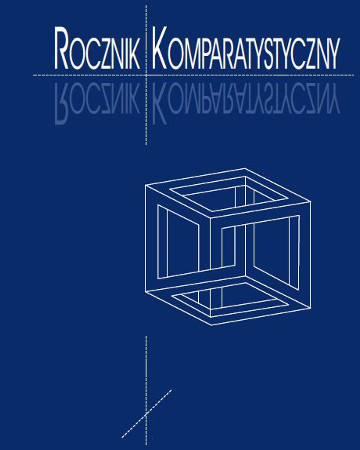





| Autorzy: |
Agnieszka
Borysowska
Książnica Pomorska w Szczecinie |
| Słowa kluczowe: | laudacja księstwo pomorskie deskrypcje miast literatura łacińska XVII w. edytorstwo translatoryka literaturoznawstwo porównawcze retoryka |
| Data publikacji całości: | 2016 |
| Liczba stron: | 13 (235-247) |
| 1. | Borysowska, Agnieszka. „Andrzej Loeaechius i jego twórczość poetycka”. Slavia Occidentalis 54 (1997): 17–28. |
| 2. | Borysowska, Agnieszka. „Wstęp”. Opis miasta Szczecina. Paul Friedeborn. Oprac. i przełożyła Agnieszka Borysowska. Warszawa: Sub Lupa, 2016. 5–31. |
| 3. | Cieśluk, Małgorzata. „Eilharda Lubinusa «Krótki opis Pomorza» – słowo od tłumaczki”. Eilharda Lubinusa podróż przez Pomorze. Red. Radosław Skrycki. Szczecin: Zamek Książąt Pomorskich, 2013. 375–382. |
| 4. | Friedeborn, Paul. Descriptio urbis Stetinensis, topographica, historica cum icone, Genium Loci adumbrante conscripta in Dei sospitatoris laudem, iustam patriae devotionem. Stetini: typis Nicolai Bartholdi, 1624. |
| 5. | Friedeborn, Paul. Opis miasta Szczecina. Oprac. i przełożyła Agnieszka Borysowska. Warszawa: Sub Lupa, 2016. |
| 6. | Gruchała, Janusz S. „Uwagi o wydawaniu prozy staropolskiej”. Terminus IX.2 (2007): 15–35. |
| 7. | Hainhofer, Filip. „Filipa Hainhofera dziennik podróży, zawierający obrazki z Frankonii, Saksonii, Marchii Brandemburskiej i Pomorza w roku 1617”. Przekład i oprac. Krzysztof Gołda. Źródła do Dziejów Pomorza Zachodniego IX (2000): 13–172. |
| 8. | Kiliaan, Cornelius. Etymologicum Teutonicae linguae, sive Dictionarium Teutonico-Latinum. Antverpiae: Moretus, 1599. |
| 9. | Krantz, Albert. Wandalia. Coloniae: Joannes Soter alias Heil et Socii, 1519. |
| 10. | Krzywy, Roman. Wędrówki z Mnemozyne. Studia o topice dawnego podróżopisarstwa. Warszawa: Muzeum Pałac w Wilanowie, 2013. |
| 11. | Mayer, Johann. Vocabularium majus, latino-germanicum in V. libros divisum, quorum I. est Scholasticus, II. Ecclesiasticus, III. Politicus, IV. Physicus et Medicinalis, V. Oeconomicus … in usum Scholae Ulmensis. Ulmae: Kühne, 1648. |
| 12. | Micraelius, Johannes. Sechstes und Letztes Buch Von deß Pommerlandes Gelegenheit und Ein-Wohnern. Bd. 6. Stettin: Georg Rhete, 1639. |
| 13. | Migdalski, Paweł. „Stan i potrzeby polskojęzycznych edycji źródeł do dziejów Księstwa Pomorskiego”. Piśmiennictwo na Pomorzu Zachodnim do końca XVIII w. Red. Janina Kosman. Szczecin: Wydawnictwo Archiwum Państwowego „Dokument”, 2015. 9–32. |
| 14. | Prasch, Johann Ludwig. Organon latinae linguae, oder Neue deutliche Lehrart, wie man die gut-Lateinische Sprache … lehren … kan …, Regenspurg: [s.n.], 1686. |
| 15. | Skwara, Marek. „Ryby w świecie ziemiańskiego dobrobytu (od sztuki kulinarnej do retoryki)”. Z warsztatu badawczego humanistyki: materiały I Sympozjum Młodych Pracowników Nauki Wydziału Humanistycznego, Uniwersytet Szczeciński, 8–10 maja 1991. Red. Robert Cieślak, Ewa Tierling, Piotr Urbański. Szczecin: Wydawnictwo Naukowe Uniwersytetu Szczecińskiego, 1993. 67–81. |
| 16. | Winiarczyk, Marek. Sigla Latina in libris impressis occurenta cum siglorum Graecorum apendice. Wrocław: Wydawnictwo Uniwersytetu Wrocławskiego, 1995. |